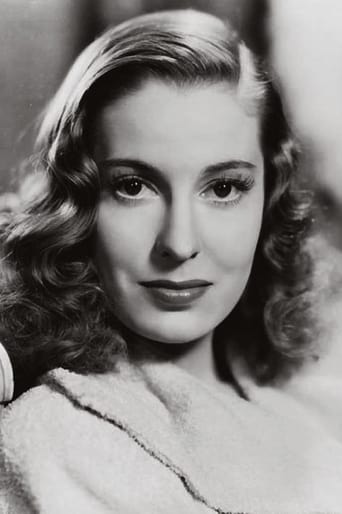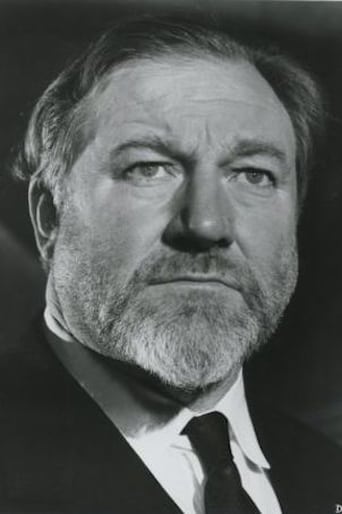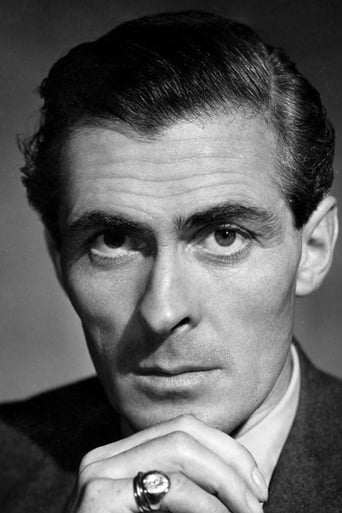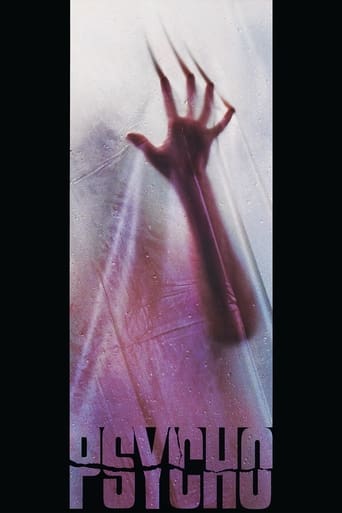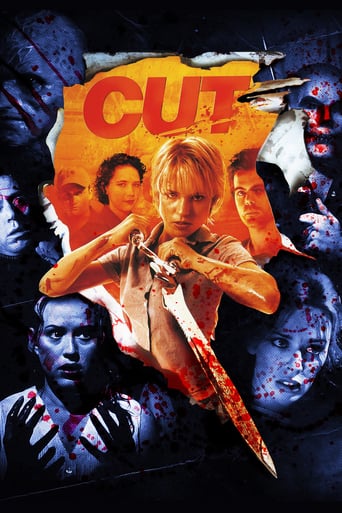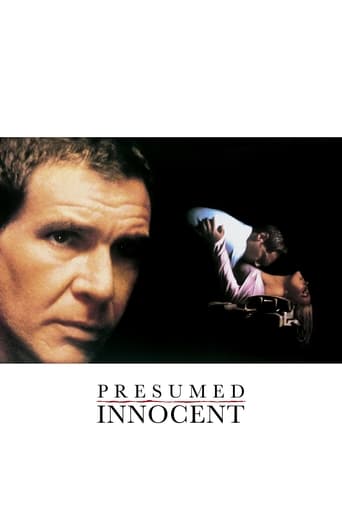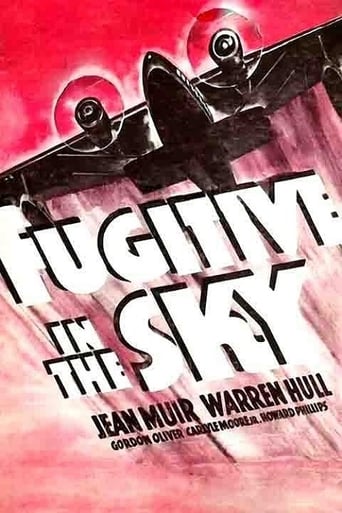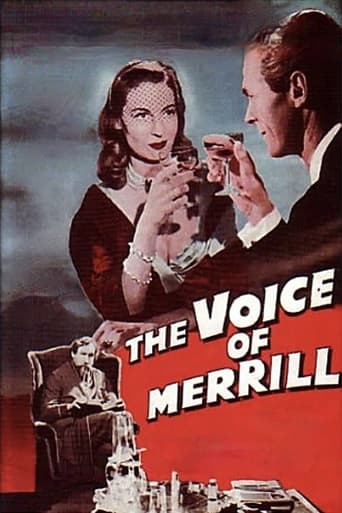
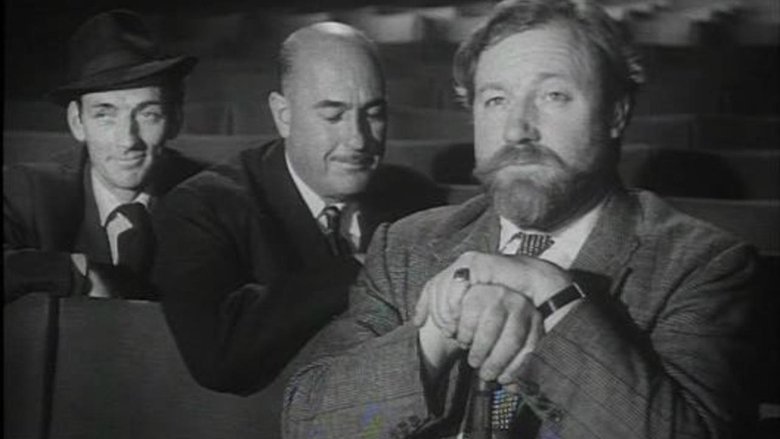
The Voice of Merrill (1953)
A convicted female blackmailer is found murdered in her flat and suspicion falls on three men, all of whom the police believe may have had reason to wish her dead
Watch Trailer
Cast
Similar titles

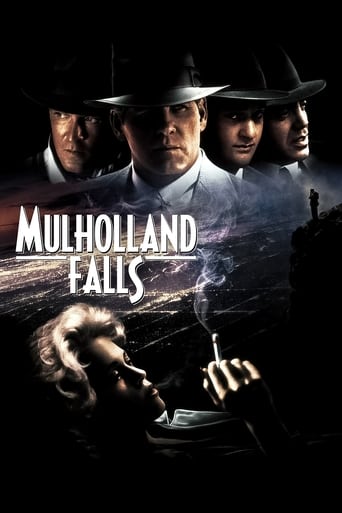
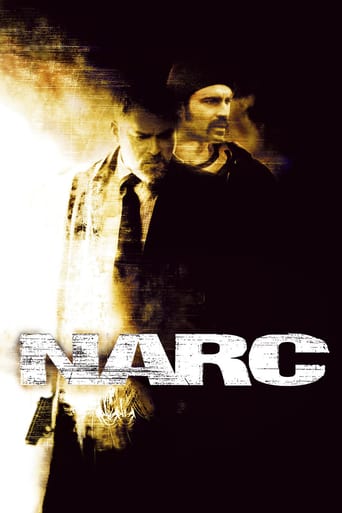
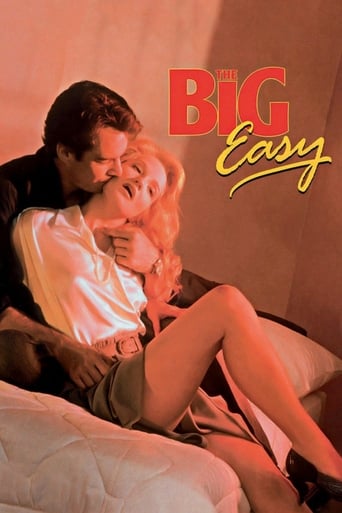
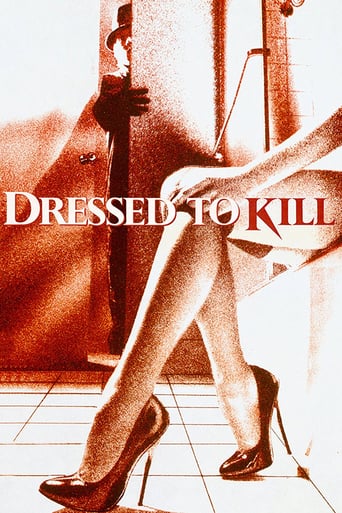
Reviews
Terrible acting, screenplay and direction.
When a movie has you begging for it to end not even half way through it's pure crap. We've all seen this movie and this characters millions of times, nothing new in it. Don't waste your time.
At first rather annoying in its heavy emphasis on reenactments, this movie ultimately proves fascinating, simply because the complicated, highly dramatic tale it tells still almost defies belief.
It's funny, it's tense, it features two great performances from two actors and the director expertly creates a web of odd tension where you actually don't know what is happening for the majority of the run time.
Producers: Robert S. Baker and Monty Berman. (Available on a very good Odeon Entertainment DVD). A Tempean Production, made at Alliance Film Studios. Released in the U.S.A. through Kramer-Hyams Films. New York opening at the Normandie: 4 April 1953. U.K. release through Eros: 5 January 1953. Australian release through British Empire Films: 16 September 1954. Sydney opening as a support at the State Theatre. 7,581 feet. 84 minutes. Censored to 7,517 feet in Australia.U.S. release title: Murder Will Out. SYNOPSIS: Three people are suspected of a murder. One of them is a self-styled literary genius. Another is an unsuccessful writer who, in the course of the action, achieves great acclaim by reading his stories on the radio. Plot sound familiar? Indeed it is. It's an obvious variant on "The Unsuspected" directed and produced by Michael Curtiz at Warner Brothers in 1947, starring Claude Rains as the literary broadcaster.COMMENT: John Gilling's direction rates not quite as high on the inventive scale as usual, as he is a trifle too respectful to his own script — an ingeniously complicated thriller with a well- thought- out climax.Nonetheless, the acting throughout scores a commendably high standard, though the lovely Valerie Hobson is not always too attractively photographed.OTHER VIEWS: This long drawn-out murder mystery fails to keep up the suspense despite its many twists... Valerie Hobson goes through most of the film with a fixed, impish smile. — M.F.B.A slickly calculated whodunit, engrossing all the way... James Robertson Justice is excellent, Valerie Hobson is beautiful and sensitive in this tense, innuendo-filled, meticulously woven thriller. — A. H. Weiler in The New York Times.
After an arresting opening murder scene, THE VOICE OF MERRILL soon becomes one of the stodgiest murder mysteries I've seen from Britain in the 1950s. It wasn't until the mid to late part of the decade that British thrillers started to become more influenced by the American film noir/crime thriller genre, thus incorporating more action and incident into the narratives.Certainly THE VOICE OF MERRILL comes across as a rather dated and ho-hum sort of film with a story that barely registers. The viewer is introduced to four separate characters, each of whom has a motive for committing the early murder: there's the up-and-coming author (played by THEY WERE NOT DIVIDED's Edward Underdown), the snobbish literary figure (played by James Robertson Justice, doing his best Orson Welles impersonation) and his wife, and the shifty publisher (Henry Kendall, of THE GHOST CAMERA fame).Much of this film seems to get bogged down in radio play material which doesn't really add anything, plus an unwelcome romantic sub-plot between Underdown and the wife character. The latter is played by the lovely Valerie Hobson (WEREWOLF OF London), still an alluring beauty some twenty years after she first came to fame. Sam Kydd has a larger supporting role than usual as one of the younger detectives investigating the case. John Gilling, who later became one of Hammer's go-to guys in the 1960s, could usually be relied upon to direct more entertaining produce than this.
Although, with a budget of just over 20,000 pounds, "The Voice of Merrill" was conceived as a "B", the polished look of the finished film was deemed too good to waste as a second feature and with Valerie Hobson it had a certifiably A star along with it's lavish production values. It also had public appeal with it's B.B.C. backgrounds. The film, very smoothly directed by John Gilling, gets off to a noirish start as, in the dead of night, legs make their way along a cold, wet street. A young woman is murdered and though the viewer doesn't know anything about her, there are a couple of very worried men. Hugh Allen, (Edward Underdown) a struggling author was the victim's lover but now he has met Alycia (Valerie Hobson) who is keen on any diversion that keeps her away from her belligerent, arrogant writer husband, Jonathon Roach (James Robertson Justice, channelling George Saunders). Another acquaintance of Roach's, Ronald Parker, is a financially embarrassed publisher and suddenly the murder motive is clear - the girl was a blackmailer!!Running alongside the straightforward murder plot is the more complicated story line of "The Voice of Merrill". Alycia has found some old stories of Jonathon's that he dismisses as early, immature work. She has organised a weekly radio broadcast in which Hugh, posing as "The Voice of Merrill" reads out the stories. He becomes a radio sensation as the reader, listeners fall in love with his voice but scheming Alycia has always planned to expose Hugh as the writer. Initially Jonathon, who has been given only a short time to live, doesn't care about the authorship but as the program becomes such a winner and he realises that Hugh and Alycia have become close, he now cares very much and hopes to rain on their parade even beyond the grave!! Hugh is not happy with things (a reviewer at the time claimed he looked "hang dog" throughout) and desperately wants to read his own stories but Jonathon is adamant that he will read the last story and claim authorship for it!!!Everyone at the time agreed that Valerie Hobson not only gave the film class but really brought everything together and tightened up the last half of the film. James Robertson Justice was very commanding in his scenes. Forgotten today, Edward Underwood was always in employment usually as respectable, stuffy types but his career may have been very different if Ian Fleming had had more influence in the casting of James Bond in "Dr. No". Underwood wasn't even considered by producer A.R. Broccoli. Fleming thought he would have made a perfect Bond but he could never have matched Sean Connery's imposing masculinity and suaveness.Highly Recommended.
Three people are suspected by Scotland Yard of killing convicted blackmailer Jean Bridges (unaccredited). The people in question are struggling author Hugh Allen (Edward Underdown) whom was going out with the murdered woman but it broke off due to unhappy circumstances. Allen's publisher Ronald Parker (Henry Kendall) is also a possible candidate because Jean Bridges blackmailed him out of three-thousand pounds whilst she was working as his secretary and finally there's the arrogant play write Jonathan Roach (James Robertson Justice) whom also knew the dead girl, but is very vague about his acquaintance with her. Inspector Thornton (Garry Marsh) discovers that none of these men have satisfactory alibis for the time of the murder so he decides to shadow these people and wait for the guilty party to give himself away. Meanwhile, Hugh Allen has fallen in love with Roach's wife Alycia (Valerie Hobson) and in order to boost her new lover's flagging career, she persuades her husband to let Allen be the narrator of his new radio serial "The Voice Of Merill". Roach agrees as he doesn't want his name associated with the stories and Alycia then suggests that she and Allen commit a fraud and claim the works as their own. She is confident that they can get away with it as her husband has a chronic heart condition and can't live for much longer. He dies but not before he has discovered what Alycia and Hugh are up to. By bribing Ronald Parker whom is in financial trouble, Roach concocts a nasty posthumous revenge that involves them both in a murder plot...I was attracted to watch The Voice Of Merrill because it was an early work by director John Gilling, who would subsequently go on to direct two of the very best Hammer horrors, The Plague Of The Zombies and The Reptile. Before that he was a very prolific director of quota quickies such as this one, which was very much the case for another of Hammer's best directors, Terence Fisher. A number of these early efforts by these guys seem very interesting but rather frustratingly have proved to be practically untraceable. Of those I have been able to see (thanks to the wonders of satellite television) have varied in quality. In this case, The Voice Of Merill, is one of Gilling's better early efforts.It was produced for a mere £25.000 as a quota quickie, but obvious care was taken with the photography and the set work and on its merits the picture was elevated to co-feature status on its release in 1952. Gilling directs from his own script here and he turns in a very fine little picture with great suspense and a fantastic twist at the end. There's an edge of seat scene near the end where Alycia thinks she's killed her husband by spiking his Port with poison. She left the room and returned to find him lying dead. When Inspector Thornton informs her that an autopsy will be required she's in hysterics. However, when Thornton returns after the postmortem it transpires that it was his heart that gave out. Alycia can't understand why the poison didn't show in the autopsy and her butler then informs her that he was clearing up a stain on the carpet, which indicates that the wine was spilt before Roach died. She is overjoyed and thinks they've got away with it but there was more to Roach's scheme that met the eye.In addition, Gilling had a marvelous cast here and Valerie Hobson as the unhappy wife Alycia and James Robertson Justice as the obnoxious and self-centered play write Jonathan Roach are standout. Very few of the quota quickies from this period are anything special in terms of acting, direction, writing or suspense so this is a refreshing change from what one would normally expect of this medium.
